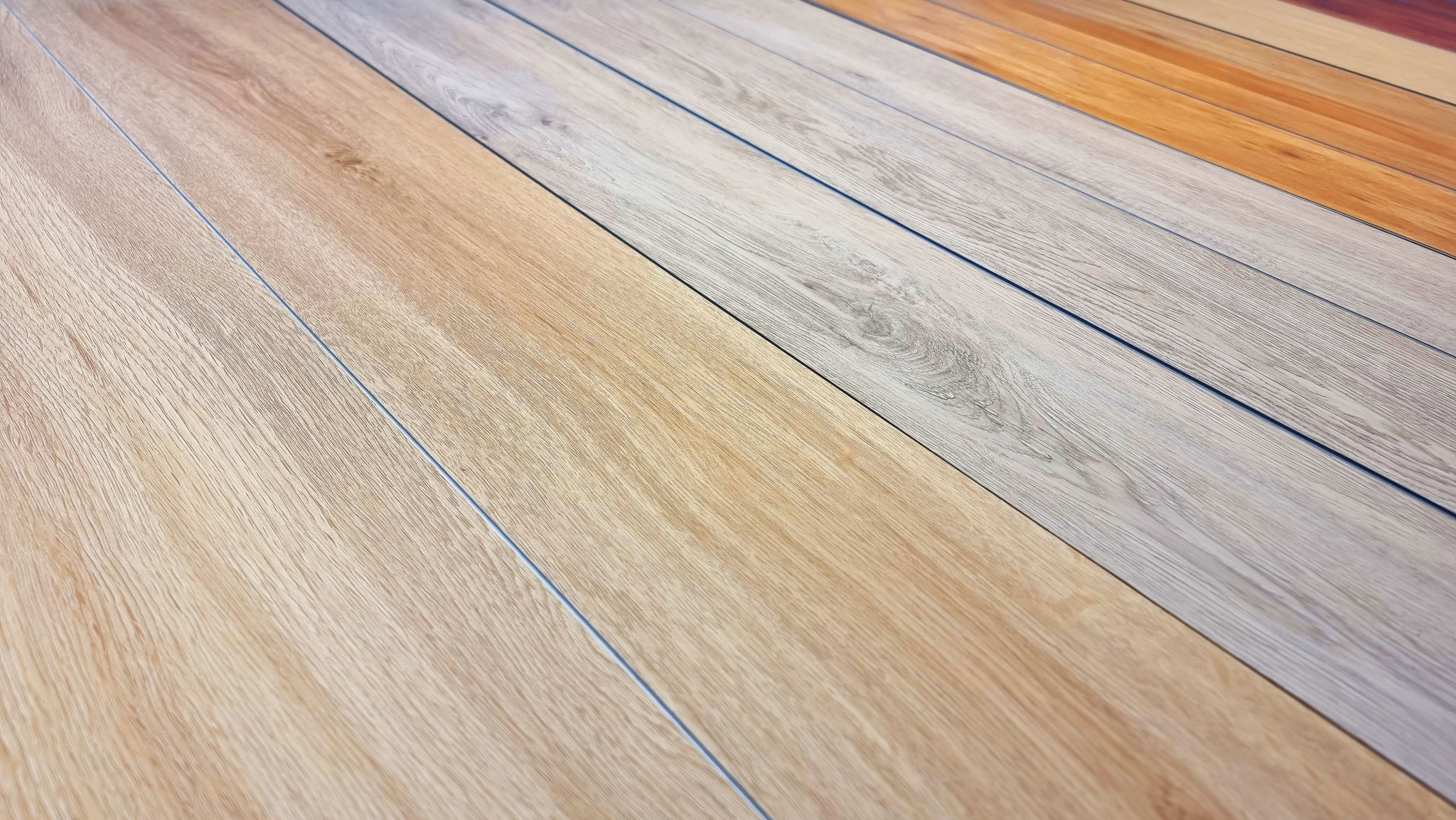Understanding the Differences: SPC vs. Laminate Flooring for Commercial Spaces
Introduction to SPC and Laminate Flooring
When it comes to choosing flooring for commercial spaces, two popular options often stand out: SPC (Stone Plastic Composite) and laminate flooring. Both offer unique benefits, but understanding their differences is crucial to making an informed decision. In this blog post, we'll explore the essential characteristics of each type of flooring, helping you determine which is best suited for your commercial space.
What is SPC Flooring?
SPC flooring is a type of vinyl flooring that combines limestone powder, polyvinyl chloride, and stabilizers to create an extremely durable core. This composition makes SPC flooring remarkably resilient and waterproof, making it an excellent choice for high-traffic areas. Its ability to withstand moisture and heavy wear is unmatched by many other flooring options.

Advantages of SPC Flooring
The benefits of SPC flooring are numerous. Some of the key advantages include:
- Waterproof: Perfect for areas prone to spills and moisture.
- Durability: Resistant to dents, scratches, and stains.
- Easy Maintenance: Requires minimal cleaning and upkeep.
Understanding Laminate Flooring
Laminate flooring is made of multiple layers fused together through a lamination process. It typically features a photographic layer that mimics the appearance of wood or stone, offering a stylish aesthetic at a fraction of the cost. Laminate flooring is well-known for its affordability and ease of installation.
Advantages of Laminate Flooring
Laminate flooring also boasts several benefits, including:
- Cost-Effective: Less expensive than many other flooring types.
- Variety of Styles: Available in numerous designs and finishes.
- Easy Installation: Often features a click-lock system for simple DIY installation.

Comparing Durability
When it comes to durability, SPC flooring has a slight edge over laminate. Its rigid core makes it more resistant to impacts and moisture, ideal for commercial environments with heavy foot traffic. Laminate, while durable in its own right, can be more susceptible to water damage if not properly sealed or maintained. Therefore, for spaces like restaurants or retail stores, SPC might be the better choice.
Appearance and Style Options
Both SPC and laminate offer diverse aesthetic choices. Laminate is often favored for its realistic wood or stone appearances, thanks to high-quality photographic imaging. SPC also offers a variety of designs, though it may not replicate natural materials as closely as laminate. Your choice will depend on the desired look and feel of your commercial space.
Installation and Maintenance
Both flooring types are relatively easy to install, with laminate often being the go-to for DIY enthusiasts due to its click-lock system. SPC can also be installed without professional help, though its heavier planks might require a bit more effort. In terms of maintenance, both are low-maintenance options; however, SPC's waterproof nature makes it easier to clean in spaces prone to spills.

Conclusion: Making the Right Choice
The decision between SPC and laminate flooring ultimately depends on your specific needs and preferences. If water resistance and durability are top priorities, SPC flooring is likely the better option for your commercial space. On the other hand, if cost-effectiveness and a wide range of style choices are more important, laminate may be the way to go. Carefully considering these factors will ensure you select the ideal flooring solution for your environment.
